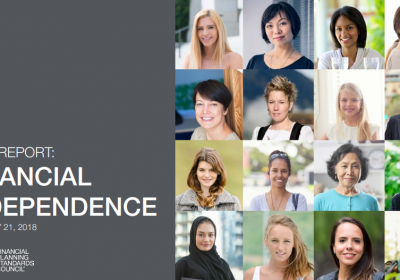- Stats: 1352 0
- Author: Money Bloggess
- Posted: January 21, 2019
- Category: Financial Planning Standards Council
Two-thirds of Canadians enter 2019 worried about the economy
Two-thirds of Canadians enter 2019 worried about their financial fortunes, according to a recent economic poll. The Kitchen Table Forecast, a Leger poll of 1,515 Canadians, was conducted for non-profit organizations Financial Planning Standards Council (FPSC) and Credit Canada.
The survey sought to add consumer context to reports on slowing economic growth by asking Canadians about a series of “kitchen table” issues – the sort of daily financial concerns that confront people on a daily basis, such as bill payments and debt, cost of living, job security and bankruptcy. It comes on the heels of a global report by The Organisation for Economic Co-operation and Development (OECD) that suggests Canada is showing signs of a sharp decline in growth in 2019.
“Canadians are feeling stressed about their finances and are often at a loss to improve their situation,” said author, personal finance educator and FPSC’s Consumer Advocate, Kelley Keehn. “This hopelessness can cause people to do nothing, and possibly make their condition worse. Uncertainty about an ever-changing job market and economy only intensifies the average person’s confidence and ability to handle the ebb and flow that life inevitably presents.”

The “R word” – Four-in-10 Canadians feel economy will get worse in 2019
The report didn’t ask about the dreaded “R-word” (recession) specifically; however, four-in-10 Canadians (42%) feel that the economy will get worse in 2019 – while 36 per cent believe it will stay the same. Across the country, people aged 55-plus are significantly more likely than those under 55 to feel the economy will get worse in 2019 (47% vs. 39%). Meanwhile, Quebecers (at 46%) are more confident than the rest of Canadians (34%) that the economy will stay the same in 2019.
“It’s no surprise people over 55 are more pessimistic (or realistic) when it comes to our economy. This isn’t their first rodeo and they know the red flags,” says Credit Canada CEO, Laurie Campbell. “Insolvency rates were up by more than five per cent last fall, we’ve seen five interest rate hikes since mid-2017, and the cost of living continues to rise. If debt levels don’t come down and people don’t start to get serious about paying off their debt, it’s only a matter of time before we’re in major trouble. You can only bury your head in the sand for so long.”
Looking ahead – Daily financial concerns
Respondents were also asked the question “Looking ahead into 2019, what are you most worried about?” Overall, two-in-three Canadians (67%) say they have worries when forecasting their prospects for the year. While gender does not play a role, those under 55 are considerably more likely to be worried (76% vs. 52% for those over 55). Respondents with children under 18 are also more likely to have concerns (79% vs. 62% for those without children).
Here are the “kitchen table” issues that are keeping Canadians up at night:
- 34 per cent are concerned that the increased cost of living will put them further in debt
- One-in-four (23%) are concerned they won’t be able keep up with monthly payments
- Also, one-in-four (23%) are concerned with their debt growing
- 13 per cent are concerned about losing their job
- 10 per cent are concerned about other bread-winners in their home losing their jobs
- 14 per cent are concerned about an unaffordable increase in mortgage interest rates
- Five per cent are concerned about going bankrupt
Alternatively, one-in-four Canadians (26%) were “not worried about anything” going into 2019.
How to recession-proof your life – tips from FPSC’s Consumer Advocate, Kelley Keehn
- Get your emergency fund established and funded. Experts estimate three-to-six months of household income that’s safe and secure.
- Do a family net worth statement. Know your situation and know where you may be leaving money on the table, like with an employer-funded pension plan or employer RRSP matching plan.
- Consider your insurance needs during times of high debt in the case of death, disability or job loss.
- Don’t panic – seek out expert assistance from a CFP® professional who can create a plan that protects your downside without adding to your already stretched bottom line.
- Take a hard look at ways to cut expenses or increase your income to increase your bottom line and help fund your emergency account.
How to recession proof your life – tips from Credit Canada CEO, Laurie Campbell
- Build (and stick to) a monthly budget to ensure you know exactly how much money is coming in, how much is going out, and how much is left over for financial goals. See where you can cut costs – for example, find cheaper cell phone and internet plans, gym memberships and better insurance rates.
- Contribute regularly to an emergency savings fund. Make regular contributions – even small amounts, such as $20, is a very positive step. Consider setting up automated savings through your bank.
- Pay down debt. Start with paying off the credit cards with the highest interest rates first, also known as the “avalanche” method for paying down debt. Credit Canada’s free Debt Calculator can help determine the best debt repayment strategy for each individual.
- Always remember that Credit Canada offers free, confidential, one-on-one counselling sessions with certified credit counsellors.
The full results of the Kitchen Table Forecast can be found on the FPSC and Credit Canada websites.
SOURCE Financial Planning Standards Council


